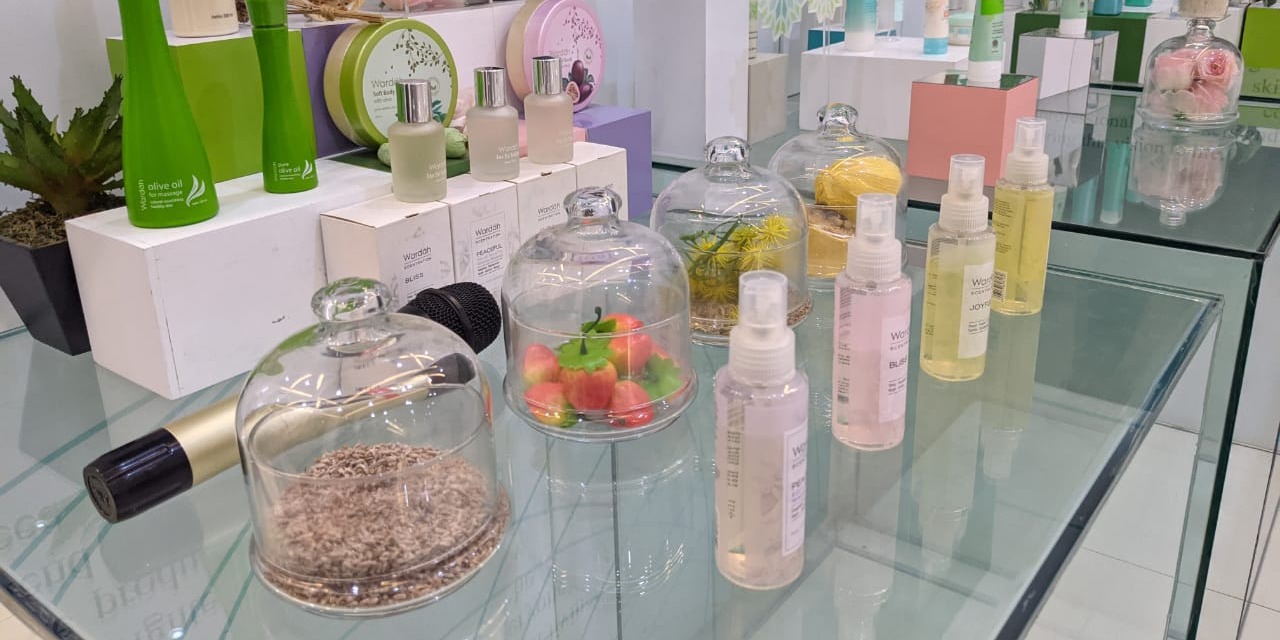Indonesia’s Wardah: Concept of halal cosmetics wasn’t inherently understood by consumers
JAKARTA – Indonesia may be a Muslim-majority country but the concept of halal cosmetics and skincare wasn’t inherently understood by consumers.
When the brand Wardah debuted in 1995, founder Nurhayati Subakat did not have it easy as not many Indonesian customers were familiar with halal products at the time. She was forced to go door to door and utilise multilevel marketing to move her Wardah products.
Her efforts paid off and in 2004 Nurhayati opened her first store. Five years later she relaunched Wardah after making substantial quality and packaging improvements.
“In the early days, we could barely find suppliers for halal raw materials,” Sari Chairunnisa, director of research and development of the company behind Wardah, PT Paragon Technology and Innovation, told Salaam Gateway.
“They didn’t understand it and we had to sit down and explain to them the importance of halal ingredients for a company or industry like ours,” said Sari, who is Nurhayati’s youngest child. She runs eight R&D laboratories for all the company’s different products.
One of the factors the company attributes to the success of Wardah was that it was the only halal-certified cosmetics and skincare product in the market at a time when there was a rising awareness of the “hijab lifestyle” in Indonesia.
Nurhayati has left the running of the now thriving family business to her three children. The oldest, Harman Subakat, is CEO of the Paragon Group, his younger brother Salman is CEO of Paragon Technology and Innovation and the youngest, Sari Chairunnisa, who is also a dermatologist, leads Paragon Technology and Innovation’s Research and Innovation Center facilities that sits on a 20-hectare factory located in Tangerang in Banten.
The company’s production facilities manufacture over 135 million units of halal-certified make-up, facial treatments, and hair products annually. These only use ingredients that are within the halal list from LPPOM-MUI, be they extracts, minerals or other raw materials.
“We avoid testing on animals. And there are two phases of formula/ raw material testing for every cosmetic product: safety and effects,” Sari explained.
“In the first phase, we test the formula for safety for the skin, including testing for irritations (single pass test), allergies (repeat pass test) and for facial usage we also test their effects under dermatologist supervision to ensure the formula or raw materials are safe,” she added.
The next stage tests the effects of the ingredients. For instance, for the Wardah “White Secret” facial collection, the labs test it first by measuring melanin levels and then examine the before and after images. “For cosmetic products, the test processes are shorter, around two weeks only. But for skincare products, it takes a longer time, around one to three months. We also have a panel to control the overall testing process,” said Sari, adding that the team comprises three dermatologists and the president director of the company.
After earning success at home, PT Paragon Technology and Innovation’s first foray abroad was in 2012 when it started selling Wardah products in Malaysia through small local distributors. In 2017, it expanded its distribution in Malaysia through the Watsons and Guardian retail networks. Since then, the company’s exports to Malaysia have consistently increased each year, from 15.4 billion rupiah ($1.1 million) in 2017 to 31.8 billion rupiah in 2018. This year, sales to Malaysia hit 122.6 billion rupiah through October, a growth of 33% year-on-year. The company has so far exported 115 containers of products from 2017 through October this year.
Expansion is on its mind, both in terms of exports as well as products. It most recently launched its first halal-certified men’s skincare brand called Kahf and with a much bigger portfolio, the company is now eyeing markets in Southeast Asia including Thailand, Singapore and Philippines.
(Reporting by Yosi Winosa; Editing by Emmy Abdul Alim emmy.abdulalim@salaamgateway.com)
© SalaamGateway.com 2020 All Rights Reserved

